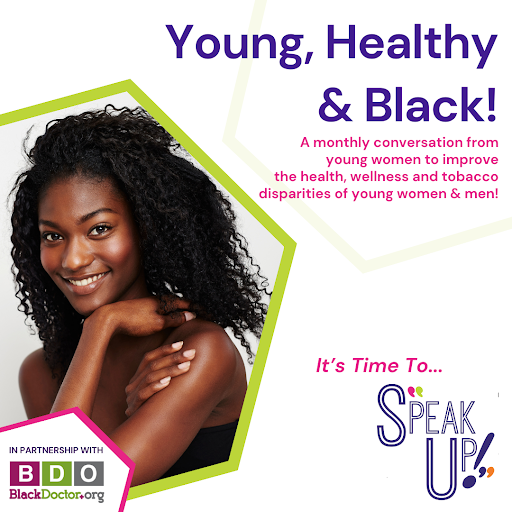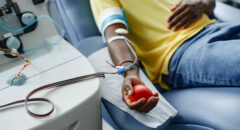
The United States’ lengthy medical history of malpractice and discrimination against Black women is a profound and widely-known truth in our community. The narrative is clear: poked, prodded, killed. Something drilled into our collective psyche from a young age. I, like many, grew up reading books about women like Henrietta Lacks, listening to my grandmother’s and mother’s testimonies and experienced firsthand my own medical horror story with a former gynecologist. Needless to say, I empathize with those that hold warranted disdain for the healthcare system; yet it's pivotal that each and every one of us donates a pint of our blood once a year. Our blood holds magical properties for those living with sickle cell anemia, which directly impacts our community and children. Donating black blood saves and enriches another Black life. Therefore, I encourage you, reader, to donate your blood at least once a year for the rest of your life. I dare you to save a life.
The American Red Cross first started segregating blood in 1942. As a result, many civil rights organizations boycotted blood donation altogether (American Red Cross, 2023). Six years later the American Red Cross determined that there was no scientific reason to segregate blood, but they forever hindered the relationship between blood donation practices and the Black community.
Recent studies corroborate and quantify the lasting impacts of segregation on modern Black blood donation. In a study that took place in 2019, they concluded that Black Americans only make up 12.7% of those who are blood donors. While the exact percentage of Black women who make up that number is unknown, we can approximate that about half, or 6.35% were women.
RELATED: 9 Things Blacks Need to Know About Donating Blood
Knowing that Black Americans make up a mere 13% of the population, the number of Black female blood donors in the United States is minuscule. These numbers are discouraging, especially since research shows that Black blood has astounding effects on those living with sickled red blood cells, and the research initiatives surrounding it.
A majority of the over 100,000 people living with sickle cell anemia in the United States are Black. Recent research has shown that “blood donors of African descent are more likely to have proteins on their red blood cells that are similar to the proteins on the red cell membrane of sickle cell [anemia] patients”.
Therefore, when Black blood is donated, fewer sickle cell anemia patients have to return to the hospital after transfusion; for the likelihood of breakdown from transfused blood cells decreases. This results in fewer painful hospital visits for patients.
When more Black blood is donated, especially to sickle cell anemia initiatives, the rate of blood rejection amongst patients with sickle cell decreases. However, the question still lies, How can we encourage Black women, a sisterhood plagued by medical malpractice, to donate their life-saving blood?
Dr. A Kyle Mack, a pediatric hematologist at Lurie Children’s Hospital in Chicago Illinois, has been diligently trying to encourage and create accessible ways for the Black community to participate in blood donations. Through spreading his message at churches on the South Side of Chicago, working with well-connected sororities and fraternities in the community, and donating blood himself, Dr. Mack has left no stone unturned in his initiative to spread awareness and influence people to donate.
Through his initiatives I’ve learned, the best way to encourage Black people, specifically women, to donate blood, is to make the experience of doing so accessible and relatable.
Inspired by Dr. Mack’s advice, I had the opportunity to donate blood this semester at Howard University, where I attend school. At first, I was terrified. I hate needles – even the idea of them launches my cortisol levels into orbit– but I challenged myself to donate blood and did.
The experience was straightforward. I walked into the Armour J. Blackburn ballroom and in front of me were four stationed beds. When my name was called, I walked to one of the desks and was asked a round of questions while my finger was facilely pricked to check if my iron levels were high enough to donate.
Once it was determined they were, I was ushered to one of the four stations to lay down and prepare for donation. They gave me a juice box! I was instructed to squeeze a ball and look the other way as a pre-packaged disposable needle was inserted into my arm (they usually ask if you want to be able to see the needle and will dress your arm accordingly.) I sat pretty comfortably and squeezed said ball every five seconds for at most 15 minutes.
After I had filled 19 ounces and some change (they take extra blood for testing) I was bandaged and wrapped and told to hold my arm up to the ceiling. At one point, I started to feel a little too warm and fuzzy and was laid fully flat on the bed for about five minutes. I was given another juice box and some fruit snacks to raise my blood sugar levels. It was simple, generally painless, and quick. Yes, I was overrun by anxiety, but once I donated and my endless questions were all gaily answered, I was at ease.
About a week later, the results of my blood tests were released and I learned that I actually have the sickle cell trait myself. I’m sharing my story because I know it is easier said than done to donate blood, for as Black women we will always be skeptical of the intentions of the medical system.
However, after donating, I left feeling pleased, not only with myself and my ability to keep my composure, but because I know there are other Black humans out there that need and now have blood from someone just like them. Blood that their body can recognize as familiar.
I pledged to donate my blood at least once a year for the rest of my life. I challenge you to do the same! Visit the American Red Cross, a hospital near you, or the closest blood drive near you and donate your blood once a year as well. And if you want to make sure your blood goes directly where you want it to, ask for a ‘Blue Tag’. This ensures that your blood is used specifically for those in need of blood transfusions due to sickle cell anemia.
Donating your blood will quite literally save a life, more profoundly, a BLACK life.
* If you choose to donate, please send us an email or photo to [email protected] we would love to post you and/or share your contribution on BlackDoctor.org.*
Lela Nicole Matthews is a Junior International Business Major and Music Minor at Howard University.









